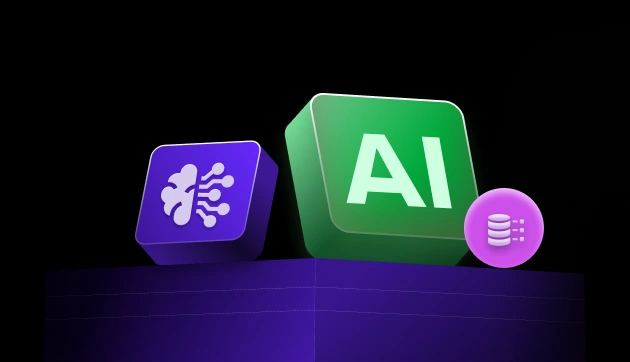
Top Skills to Become an Artificial Intelligence Professional
Mar 07, 2025 6 Min Read 1769 Views
(Last Updated)
Artificial Intelligence is shaping the future in amazing ways, from revolutionizing healthcare to making our favorite shows and products easy to discover. Imagine being part of the tech that diagnoses diseases or curates that perfect playlist just for you. Sounds exciting, right?
So, what does it take to make a mark in this field? It’s more than just tech skills; it’s about creativity, problem-solving, and being able to communicate your ideas. Whether you’re dipping your toes into AI or aiming to become an expert, here’s a guide to the essential skills to become an artificial intelligence professional. This comprehensive guide will help you thrive in this amazing and fast-paced field.
Table of contents
- Strong Foundation in Math Concepts
- Linear Algebra:
- Calculus:
- Probability and Statistics:
- Programming Skills
- Python:
- R:
- Java:
- C++:
- MATLAB:
- Machine learning
- Data Modeling and Engineering
- Big Data Analysis
- Data Handling and Analysis
- Natural Language Processing (NLP)
- How to Advance with These Core AI Skills?
- Leverage Online Courses
- Build Real-world Projects
- Set up a Portfolio to Showcase your Skills
- Stay Updated and Learn Continuously
- Essential Soft Skills to Become an Artificial Intelligence Professional
- Critical Thinking
- Problem-Solving
- Communication
- Collaboration
- Wrapping Up
- Frequently Asked Questions
- Which programming language should I start with for AI?
- What is the most demanding skill in AI?
- Is big data knowledge necessary for all AI roles?
1. Strong Foundation in Math Concepts
A strong foundation in math is essential for AI professionals because math provides the theoretical framework behind AI algorithms, enabling professionals to understand, develop, and optimize models effectively. Key mathematical areas for AI professionals include:
Linear Algebra:
Linear Algebra represents data and transforms it in neural networks, where vector and matrix operations are fundamental.
Calculus:
Calculus is essential for optimizing algorithms, especially when training neural networks using gradient descent. Partial derivatives and chain rule concepts in calculus help AI professionals adjust model parameters for better accuracy.
Probability and Statistics:
The concepts are used to handle data uncertainty and to make predictions based on data patterns.
Consider taking online courses focusing on AI-specific math applications, helping you bridge theory with practical implementation.
2. Programming Skills
Programming is indispensable in AI. AI professionals use programming languages to write algorithms, build models, and manage data. Here are the key programming languages for AI professionals:
Python:
Python is the top choice for AI due to its simplicity, readability, and extensive libraries (such as TensorFlow, PyTorch, sci-kit-learn, and Keras) designed for machine learning and deep learning. Python’s versatility makes it suitable for both beginners and professionals.
R:
Known for its statistical prowess, R is commonly used in AI for data visualization, statistical modeling, and data analysis. R is precious for professionals focusing on data science aspects of AI, providing libraries like Caret and randomForest.
Java:
Java is favored in large-scale enterprise applications due to its speed and performance. AI developers use Java for natural language processing and neural networks. Tools like Weka and Deeplearning4j expand Java’s capabilities in AI.
C++:
Though not as popular as Python for prototyping, C++ offers high performance, making it useful for resource-intensive AI tasks like real-time computer vision. C++ is often used to optimize parts of an AI application, such as the backend of a deep learning model.
MATLAB:
Commonly used in academia and industry for machine learning and data analysis, MATLAB provides a vast library for data manipulation and visualization, though it’s less common in production environments.
Start with Python and consider learning one or two additional languages based on your AI career goals.
3. Machine learning
Machine learning is a fundamental skill for AI professionals because it serves as the core technology that enables AI systems to learn from data, make predictions, and improve performance over time without explicit programming. It is behind nearly every major AI application, from recommendation systems and autonomous driving to fraud detection and language processing. Understanding ML allows AI professionals to create systems that can process vast amounts of data, identify patterns, and generate insights.
Machine learning techniques, like supervised and unsupervised learning, clustering, and neural networks, give AI professionals powerful tools to tackle real-world problems. These techniques are essential for building predictive models, optimizing processes, and creating personalized experiences for users. For an AI professional, mastering ML is essential for building, improving, and advancing intelligent systems across various domains.
Also Read: Top 9 Machine Learning Project Ideas For All Levels [with Source Code]
4. Data Modeling and Engineering
Data modeling and engineering are crucial skills for AI professionals because they enable the structuring, organizing, and processing of data, the lifeblood of AI applications.
Data rarely comes neatly organized; it’s often messy, unstructured, or incomplete. Data modeling involves designing a structure that organizes this raw data into a format that AI algorithms can use. It’s about understanding the relationships between data elements and organizing them effectively so that models can extract relevant insights accurately.
A solid understanding of data modeling and engineering makes it easier for AI professionals to work with data scientists, analysts, and software engineers. When data is well-structured and accessible, it allows teams to collaborate more efficiently and effectively, which is essential for the success of AI projects. In short, data modeling and engineering enable AI professionals to handle, prepare, and manage data in ways that make AI systems accurate, efficient, and scalable.
5. Big Data Analysis
Big Data Analysis is an essential skill for AI professionals because it empowers them to extract meaningful insights from massive datasets, fueling more accurate and impactful AI models. Also, AI applications often rely on large, diverse datasets to train and refine models, especially in fields like healthcare, finance, and social media, where vast data is generated daily. Big data analysis helps AI professionals handle these massive datasets, ensuring that valuable patterns are identified amidst the noise.
It equips AI professionals to build systems that can process and analyze data instantly, allowing these applications to respond effectively and make split-second decisions as many AI applications, such as autonomous driving and financial trading, require real-time data analysis.
Big data analysis tools allow AI professionals to uncover trends, correlations, and anomalies in complex datasets. This ability is crucial for applications like recommendation engines, fraud detection, and customer sentiment analysis, where understanding user behavior and detecting unusual patterns add tremendous value.
Also, Big data analysis is more than just handling large datasets; it’s about transforming vast amounts of information into actionable insights that fuel AI models, improve their performance, and enable real-world scalability. In short, for an AI professional, mastering big data analysis is crucial to creating AI systems that are both powerful and practical.
Also read: Top 10 Big Data Project Ideas [With Source Code]
6. Data Handling and Analysis
Data handling and analysis form the backbone of AI, as they transform raw information into structured, usable data that AI models can learn from. These skills are essential for developing high-quality, impactful AI solutions that deliver reliable results across various applications.
The quality of an AI model largely depends on the quality of the data it’s trained on. Data handling involves cleaning, organizing, and structuring data, ensuring that it is accurate and relevant. Without properly prepared data, AI models may produce skewed or unreliable results. Data analysis skills allow AI professionals to identify patterns, trends, and correlations within datasets.
This is crucial for making informed decisions during the model development phase and for refining models to meet real-world needs. Whether it’s customer behavior analysis or anomaly detection, data analysis helps in deriving actionable insights that enhance model accuracy.
Analyzing data helps AI professionals interpret the outputs of their models and understand why certain decisions are made. By identifying key factors that drive model predictions, they can fine-tune models, make them more interpretable, and better communicate insights to stakeholders.
7. Natural Language Processing (NLP)
NLP enables AI professionals to develop systems that understand and respond to human language, unlocking a vast range of practical applications that make AI more relatable, accessible, and useful across diverse sectors.
It bridges the gap between humans and machines by allowing AI systems to process and respond to text and voice in a way that feels natural to users. This makes interactions with AI, like voice assistants and chatbots, intuitive and user-friendly, expanding AI’s accessibility and applicability in customer service, healthcare, education, and beyond. These skills allow AI professionals to analyze this unstructured data, enabling sentiment analysis, trend identification, and insight extraction, which can inform better decision-making in businesses and organizations.
NLP allows AI professionals to develop applications that directly impact customer satisfaction, such as personalized recommendations, automated support systems, and feedback analysis tools. By understanding customer needs and responding in natural language, AI systems can significantly enhance user experience, making NLP valuable in fields like e-commerce, entertainment, and healthcare.
You Might Like: Natural Language Processing with Python, through a Self-paced course, try GUVI’s Natural Language Processing with Python, a Self-Paced course.
How to Advance with These Core AI Skills?
Gaining the right skills to become an artificial intelligence professional comprises acquiring the knowledge of basic skills, self-directed learning, and hands-on practice. Here’s a roadmap to acquiring these essential AI skills effectively:
Leverage Online Courses
Leveraging online courses and certifications is essential for AI professionals for several reasons, especially considering the dynamic and rapidly evolving nature of the AI field. One of the biggest advantages of online courses is the flexibility they offer. AI is a complex field, and not everyone has the luxury of a traditional classroom setting or a full-time university program. Online courses, whether free or paid, allow you to learn at your own pace, fitting into your schedule as you balance work or other commitments.
You can revisit concepts as needed, enabling deeper understanding over time. By enrolling in reputable courses like GUVI’s IITM Pravartak-Certified Artificial Intelligence and Machine Learning course, you ensure you’re learning the most current trends in AI, from cutting-edge neural networks to advancements in machine learning frameworks. Our course offers a project-based learning experience, an opportunity to learn from industry experts, and placement assistance
Build Real-world Projects
Working on real-world projects allows you to apply theoretical knowledge in a practical setting, which reinforces core concepts in machine learning, data processing, and model evaluation. AI projects require you to tackle unique, complex problems, which hone your problem-solving skills. This experience helps build the resilience and adaptability essential for navigating AI challenges in professional settings.
From data manipulation with Python to deploying models with TensorFlow or PyTorch, hands-on projects expose you to essential tools and frameworks used in AI development. This practical familiarity with industry-standard software and libraries improves your technical proficiency, making you better prepared to handle real-world tasks in an AI role.
Begin with small projects that focus on specific aspects of AI such as image recognition, chatbots, or machine learning algorithms. As you gain confidence, tackle more complex problems, such as creating predictive models, natural language processing applications, or even deep learning projects involving neural networks.
Set up a Portfolio to Showcase your Skills
Projects serve as tangible proof of your abilities and expertise. By building a portfolio or personal website of completed projects such as image classification models, natural language processing applications, or recommendation systems, you can demonstrate your skills to potential employers. A strong project portfolio can set you apart in interviews, showing that you not only know AI theory but also have a track record of implementing it effectively.
Stay Updated and Learn Continuously
Engage with other AI professionals by joining online communities, and discussion forums, and attending events such as hackathons and AI meetups. Also, continuous learning and persistence are key. Be open to exploring new tools, techniques, and methodologies. Take online workshops, read AI books, attend webinars, and always look for ways to improve your skills.
By consistently learning, gaining experience, and collaborating with others, you can develop the expertise needed to excel as an AI professional. Stay curious, keep experimenting, and don’t be afraid to push the boundaries of what AI can achieve.
Essential Soft Skills to Become an Artificial Intelligence Professional
While technical expertise is crucial, soft skills are what truly set great AI professionals apart. These skills are crucial for AI professionals because the field of artificial intelligence involves not only technical expertise but also collaborative, strategic, and communicative abilities.
Critical Thinking
AI involves continuous iteration and refinement. A critical thinker can identify flaws, optimize performance, and ensure the technology serves its intended purpose responsibly and effectively.
Problem-Solving
Whether you’re debugging code, dealing with unexpected data issues, or optimizing models, strong problem-solving skills enable you to find innovative solutions efficiently.
Communication
AI projects often require buy-in from various departments, making clear, accessible communication key to project success. Good communication ensures that all stakeholders understand and align with the project goals and outcomes.
Collaboration
AI projects typically involve cross-functional teams. Collaborative AI professionals can integrate insights from various disciplines, leading to more seamless workflow and robust AI solutions.
Wrapping Up
Becoming an AI pro is all about blending tech skills with people skills. Sure, mastering math, programming, machine learning, and big data is essential, but things like critical thinking, problem-solving, and clear communication matter just as much. With a solid foundation across these areas and plenty of hands-on practice, you’ll be ready to make a real difference in the AI world. So, keep learning, stay curious, and don’t shy away from challenges.
Remember, the AI field is all about innovation and creativity, so the more you experiment, the more you’ll grow. Dive in, embrace the process, and you’ll be all set to build a meaningful, exciting career in AI!
Frequently Asked Questions
Python is recommended for beginners, due to its simplicity and extensive AI libraries. For specific roles, adding languages like R or Java can be advantageous.
The most demanding skill in AI is proficiency in machine learning, as it forms the backbone of AI applications. This includes a deep understanding of algorithms, data modeling, and the ability to work with large datasets to train and optimize models, which are essential for building intelligent systems.
No, Big data is not essential for all roles but it’s critical in roles involving large-scale data analysis, machine learning, or data engineering.

























Did you enjoy this article?